Content from the Brookings Doha Center is now archived. In September 2021, after 14 years of impactful partnership, Brookings and the Brookings Doha Center announced that they were ending their affiliation. The Brookings Doha Center is now the Middle East Council on Global Affairs, a separate public policy institution based in Qatar.
The protests in Tunisia this month have emitted a powerful message: The government’s repeated failure to meaningfully address socio-economic grievances will not go unchallenged.
The protests speak volumes about the way Tunisians conceptualize injustice. The demonstrations are not simply about the controversial finance law that was enacted on January 1. They are about a legacy of economic inequality and the social and economic marginalization of certain parts of Tunisia. They are about corruption and a lack of accountability for such crimes. They are about the failure of the Essebsi government to remedy this legacy of socio-economic grievances.
A legacy of economic marginalization
Tunisia’s history has been dotted with such mini-uprisings, each one breathing new life into a continuous struggle to address socio-economic inequality. The anti-government protest movement in Tunisia has its roots in workers’ movements, starting with a strike in 1978 under its first post-independence president, Habib Bourguiba. It signified the start of a decades-long workers’ movement that demanded better contract terms, higher salaries, working conditions, and a solution to rampant unemployment—particularly in the interior regions of the country, which have been historically and systematically marginalized.
In 1984, following an International Monetary Fund (IMF) request to temporarily lift subsidies on primary foodstuffs to fulfil certain requirements for international loans, the cost of bread rose by 108 percent. This led to massive bread riots known as intifadat al khubz, with almost 100 people dead and almost 1,000 injured.
The link between socio-economic and civil and political grievances
But the struggle against economic injustice in Tunisia also has roots in grievances pertaining to civil and political rights. This is in part why the visibility of corruption throughout former authoritarian President Zine El Abidine Ben Ali’s reign is a major factor that fuelled public demands for his prosecution, as well as that of his aides.
 The right to freedom of expression, the right to assemble, and the right to freedom from torture and arbitrary detention have all been repeatedly and systematically violated throughout Tunisia’s history. The Ben Ali regime in particular propped itself up through mass corruption and economic crimes by severely oppressing swathes of the population who voiced their dissatisfaction with the dire state of economic inequality. The lavish lifestyle of the Ben Ali and Trabelsi families, funded by ill-gotten funds, is just one example of the ways in which corruption upheld the authoritarian regime.
The right to freedom of expression, the right to assemble, and the right to freedom from torture and arbitrary detention have all been repeatedly and systematically violated throughout Tunisia’s history. The Ben Ali regime in particular propped itself up through mass corruption and economic crimes by severely oppressing swathes of the population who voiced their dissatisfaction with the dire state of economic inequality. The lavish lifestyle of the Ben Ali and Trabelsi families, funded by ill-gotten funds, is just one example of the ways in which corruption upheld the authoritarian regime.
In 2008, a mass revolt against unemployment and economic inequality in the town of Gafsa resulted in several deaths and many injuries. The six-month Gafsa revolt is widely regarded as a turning point in the lead up to the Tunisian uprising two-and-a-half years later. Gafsa and its aftermath helped chip away at the fear barrier that prevented many Tunisians from challenging the regime’s repressive policies.
The recent protests are further confirmation that this fear barrier is no more—even in the face of continued arbitrary arrests and other repressive practices in an attempt by the government to clamp down on the protests.
Corruption and economic crimes have been and continue to be perpetrated. As though this wasn’t enough, the government has been actively working to prevent those perpetrators from being held responsible, in an ostensible attempt to help revive the economy.
The recent protests are further confirmation that this fear barrier is no more—even in the face of continued arbitrary arrests and other repressive practices.
The Tunisian old guard’s attempts to clamp down on accountability
While the 2018 Finance Act led Tunisians to take to the streets this month, another controversial law also intensified their outrage. The reconciliation law, which grants certain civil servants immunity from prosecution for corruption and economic crimes, was passed in 2017. An incensed civil society mobilized and established, among others, the Manich Msemah anti-corruption campaign to call for a reversal of this unjust law.
Prime Minister Yousef Chahed’s so-called “war on corruption” is problematic. The individuals targeted as a result of this effort were arrested under an emergency law and referred to military tribunals. While there are Tunisians who support this alleged war on corruption, many remain frustrated with the selective and arbitrary way in which it has been carried out.
This month marks the seventh anniversary of the ouster of Ben Ali. The current government has been criticised for serving as a “vehicle for the revival of the old regime.” This is not lost on those protesting in the streets of several Tunisian towns over the past month.
The protests also bring to the fore the question of whether Tunisia’s Truth and Dignity Commission (TDC) will have any impact on efforts toward accountability for corruption and economic crimes. This year will mark the expiration of the TDC’s mandate. President Beji Caid Essebsi’s government has repeatedly challenged and even violated the TDC’s mandate and the Tunisian constitution. Most notably, it blocked the TDC’s access to the presidential archives and passed the reconciliation law, which many see as part of the counter-revolutionary assault on Tunisia’s search for the truth.
Given the long history of the struggle against economic inequality and corruption in Tunisia, President Essebsi and his government would do well to genuinely address the socio-economic needs of ordinary Tunisians. Wishing away their grievances by enacting unjust laws only exacerbates instability. By violating their right to freedom of assembly and freedom of expression, the current government is extending the legacy of abusing civil and political rights to wage a corrupt war against economically disadvantaged Tunisians.
Protesters, including those from the Fech Nestannew campaign, are calling on the government to increase the minimum wage and aid to poor families, and to address unemployment and the rising cost of living. They have called for a revision of the budget and austerity measures imposed by the Finance Act. They are also calling for an investigation into the death of a 55 year-old man during protests in the town of Tebourba. In response to the protests, the Tunisian government pledged over $70 million in aid to poor families. The continued protests, however, indicate that this alone is not enough.
It is clear that the government will need to revamp its approach to economic inequality, corruption, and the wavering protection of civil and political rights. It should do so by prioritizing decisions reached via public consultation, such as the constitution and the TDC’s mandate, rather than through the enactment of unpopular laws that continue to disadvantage Tunisia’s poor and marginalized populations.
The current protests are not on the same scale as those of 2010 and 2011. But they are yet another turning point in Tunisia’s history of mini-uprisings—all of which ultimately led to the mass mobilization that spun Tunisia into a whirlwind political transition seven years ago. If ignored again, mass discontent will continue to feed intensified unrest in a country that has often—and exaggeratedly—been described as the “beacon of hope” for the Arab Spring.
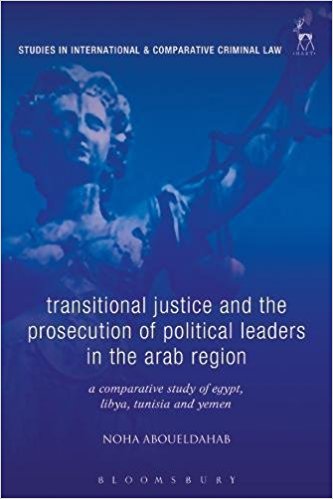
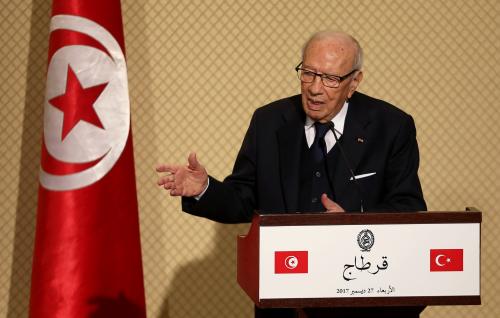
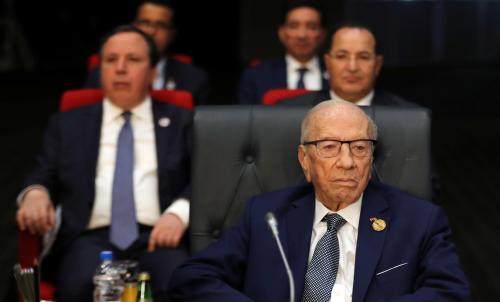
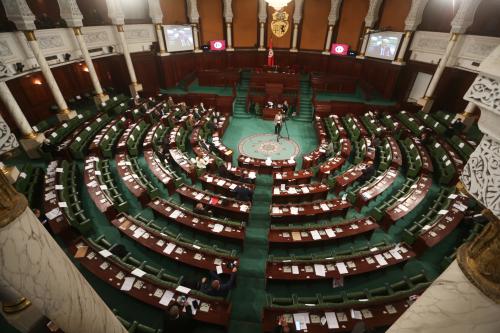
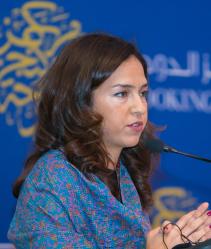



Commentary
Unrest in Tunisia: Another turning point in a legacy of economic injustice
January 29, 2018